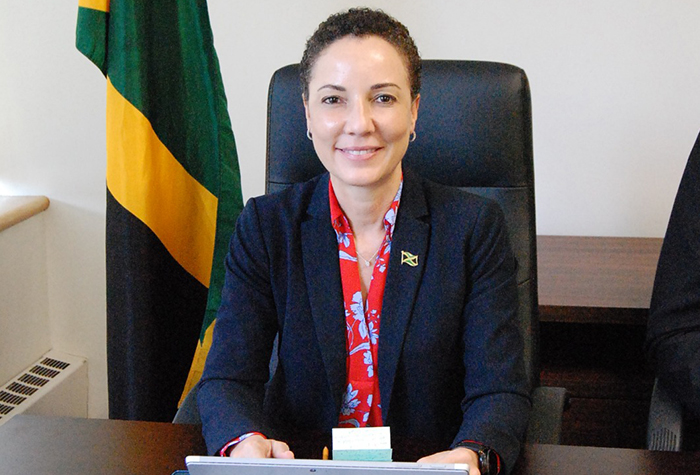Caribbean Needs Disaster Risk Financing Solutions – Senator Johnson Smith
By: , July 15, 2022The Full Story
Minister of Foreign Affairs and Foreign Trade, Senator the Hon. Kamina Johnson Smith, says there is urgent need for disaster risk financing solutions for countries across the Caribbean.
She made the call as she addressed the 2022 United Nations High Level Political Forum (HLPF) on the Sustainable Development Goals (SGDs) on July 13.
The Senator, who spoke on the topic: ‘Financing for Development: Catastrophe Bonds,’ highlighted the region’s vulnerability to disasters, noting that over the last decade, the Caribbean has had only one year with less than 10 named storms.
In 2020, a historic high of 30 named storms were recorded, while 21 were documented in 2021, which was the third highest. An above normal hurricane season is forecasted for 2022.
Mrs. Johnson Smith said that Jamaica has successfully collaborated with international partners to implement long-term strategies to prepare for and respond to disasters, and there is need for more partnerships among Caribbean states and development institutions.
A World Bank release, last year, said that the International Bank for Reconstruction and Development (IBRD) announced a catastrophe bond that provides financial protection to the Jamaican government against losses from named storms.
The commitment values US$185 million and covers three Atlantic tropical cyclone seasons. It will end in December 2023. The IBRD is the lending arm of the World Bank.
Disaster risk reduction is integral in achieving the SDGs, which were adopted by the United Nations in 2015. The SDGs provide a blueprint to achieve a better and more sustainable future for all.
There are 25 targets related to disaster risk reduction in 10 of the 17 Goals.
“We must understand why disaster risk reduction features heavily across the SDGs. For Small Island Developing States (SIDS), which already operate in an extremely tight fiscal space, the fact is that the compounded costs of severe weather events, and non-discretionary domestic priorities are crippling,” Senator Johnson Smith said.
The SDGs have been incorporated into Jamaica’s National Development Plan, Vision 2030 Jamaica and are being implemented through the Plan’s successive three-year Medium-Term Socio-Economic Frameworks (MTF).
SDG 17 is an urgent call for action by all countries – developed and developing – in a global partnership for sustainable development.
“Jamaica has long embraced SDG 17, and we have a history of doing so in the realm of development financing. As we review progress on the SDGs and strategies to strengthen the means of implementation this week, we acknowledge the support of our development partners,” Senator Johnson Smith said.
Senator Johnson Smith and Director General of the Planning Institute of Jamaica (PIOJ), Dr. Wayne Henry will present the country’s Voluntary National Report on the SDGs on Friday, 15 July 2022.




